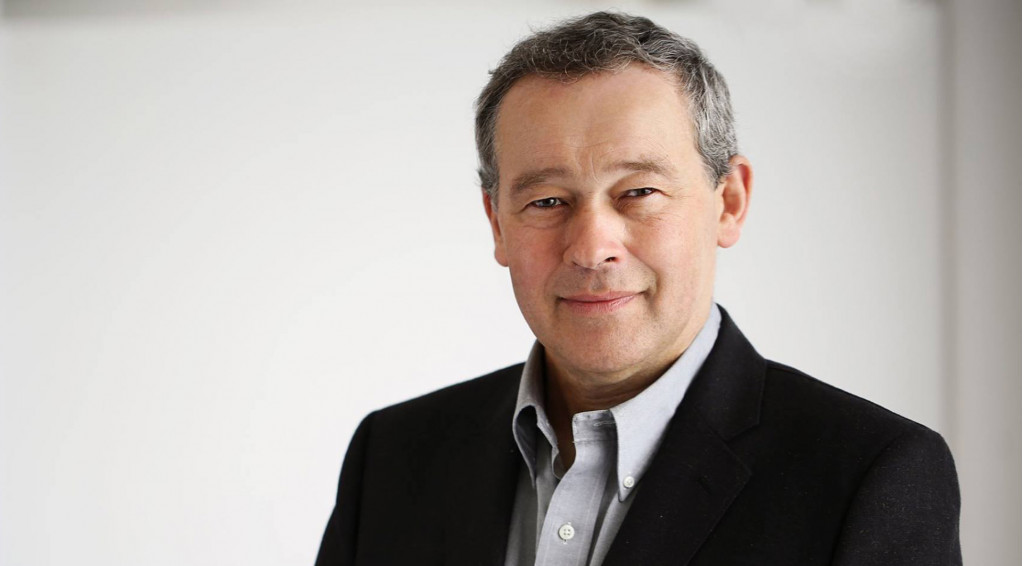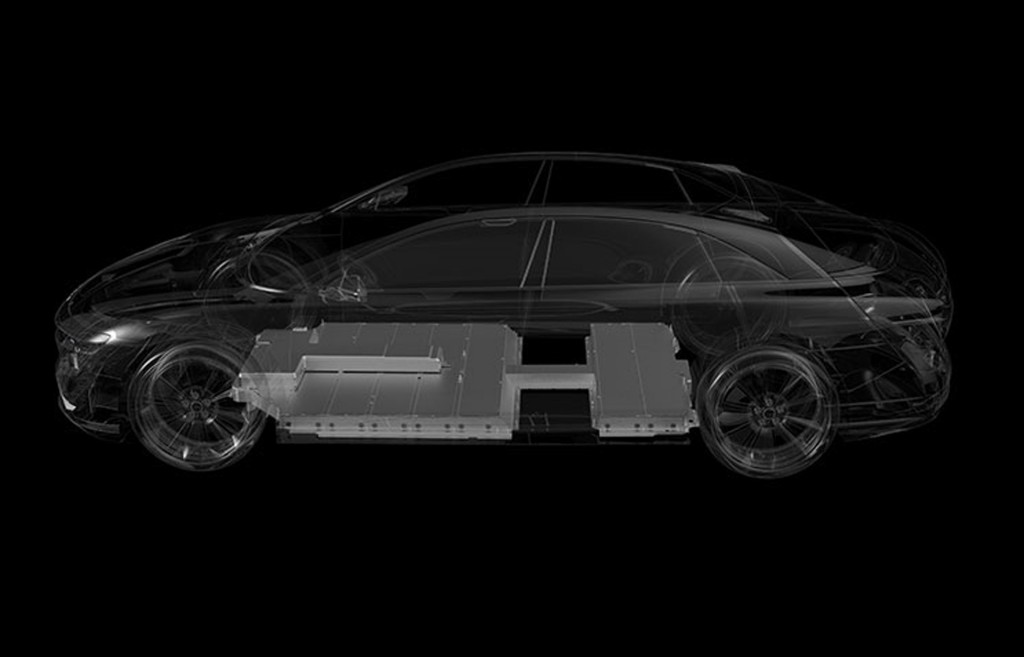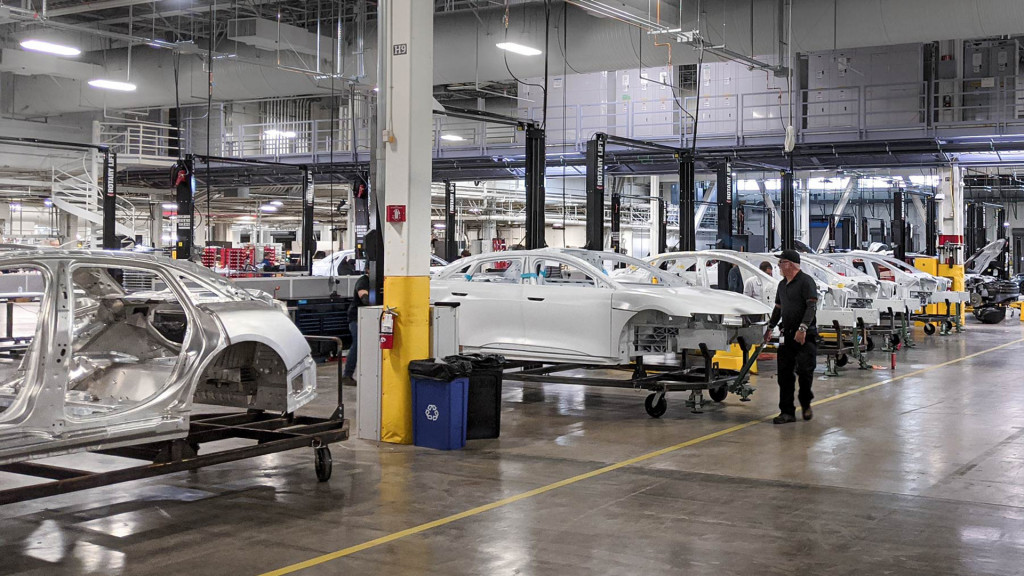Since last year the California-based electric vehicle maker Lucid has been going full-speed ahead.
It’s nearly finished building its factory in Casa Grande, Arizona, and it’s installing a pilot production line there later this month. There, Lucid will immediately start making a batch of what it calls “Beta 2” cars that are almost representative of production models that will reach the first customers next spring.
CEO and CTO Peter Rawlinson boasts that Lucid has the first purpose-built EV factory in North America, built in record time.
“It will have been eight months from ‘a piece of dirt’ to cars coming off the pilot line,” he told Green Car Reports, in a nearly hourlong interview late last week.

Peter Rawlinson
Things haven’t always been moving quite this fast for Lucid, though—especially from 2017 until spring 2019, when the company had to park its manufacturing plans while it sought money needed to bring its Air luxury sedan to production.
In that period, Rawlinson’s development team continued to innovate in the Air. What was originally going to be a 400-mile car in its earlier “Alpha” prototype form has turned into a 500-mile one. The motor and power systems were engineered and developed in-house to be more efficient. The car’s been upgraded to a 900+ volt architecture, also for a host of advantages culminating in efficiency. Lucid broke from driving-assistance partner Mobileye and procured its own hardware and backbone, claiming to be the first ADAS built on an Ethernet ring. And the battery cells were updated to the latest LG Chem 2170-format cylindrical cells—the same size as what goes in the Tesla Model 3 and Model Y.
All this can’t possibly be for one low-volume car.
Set up for a whole family of products
Perhaps because of that extra time, Lucid will end up not just with a better, more efficient car, but also with a vault of technology it can apply to other vehicles—like the SUV that the company has hinted before was on the table.
“I can confirm that we’re doing an SUV off the Air platform,” said Rawlinson, confirming that the company has a driving prototype of the future vehicle. “And I’m going to put that into production in early ‘23.”
“That is the vision,” Rawlinson quickly added. “And that is really, really important because we need economies of scale to grow the business.”

Lucid Air
Prices of the Lucid Air sedan with the 500-mile extended-range pack will reach past $100,000. But once it gets closer to those economies of scale, look for the company to bring its technology to a much more affordable vehicle.
Rawlinson said that the SUV “is going to be as awesome as the Air,” and is being conceived to share an assembly line with it. A second expansion of the Lucid plant will make room for it, he explained.
Lucid does have a product map that potentially includes several more models beyond the Air. And the body shop, including the paint shop and general assembly, will be flexible for all future products for the next seven or eight years, Rawlinson said. “We looked at a whole range of products we may want to make and we designed the paint shop from scratch to accommodate that.”

Lucid Air
“Our SUV will be a similar length to Lucid Air; length is a big thing with the paint shop,” he said. “But if we want to make a longer vehicle like a pickup or something like that, which we may want to make in the future, the paint shop is future-proof for pickups.”
Rawlinson said that Lucid isn’t planning a pickup now. Just not quite yet. But it’s clearly an idea it’s considering.
Not interested in “contract manufacturing”
One thing that Lucid is definitely not considering is making EVs for other EV companies.
“No, absolutely not. Nobody’s going to do that; it’s pie in the sky,” he said, with a bemused tone, when asked about the possibility. “This notion that they’re just going to outsource the manufacturing...absurd.”
“I know Lucid’s got the best technology. I want to make the best technology benefit to all mankind. Why would I make anyone else’s vehicle?”

Artist's impression of Lucid's planned plant in Casa Grande, Arizona
Ten years ago Rawlinson was chief engineer at Tesla, and Tesla wasn’t a hot company then, Rawlinson points out. Fisker was. Outside of Tesla, others thought they could outsource the tech and it was a disaster.
“And now 10 years on, what have we got? We’ve got a whole bunch of companies, and there’s just one that’s got the tech and is doing it all in-house. None of the others are,” he said.
That vault of technology that Lucid was building up when it wasn’t building cars—on Air development and things like the Formula E battery pack—adds value for the company. That value might be what makes Lucid worthwhile in the long run.
